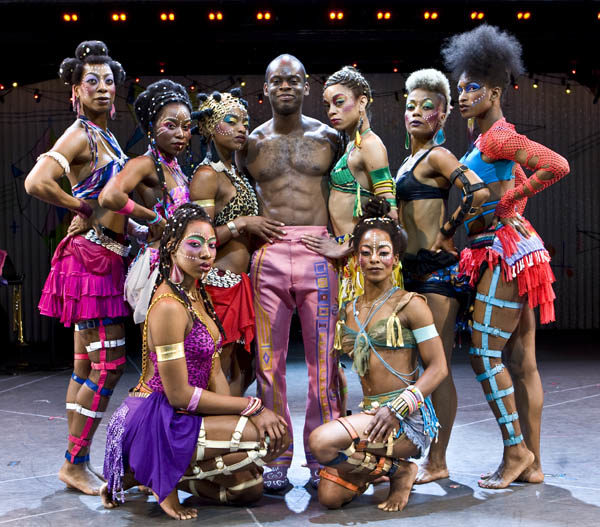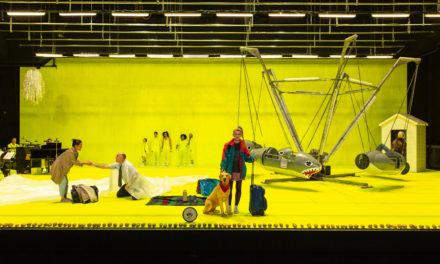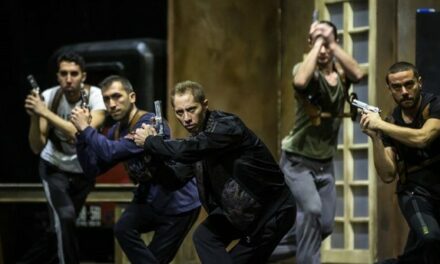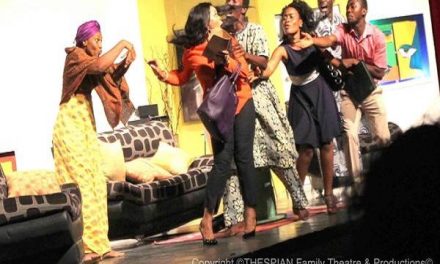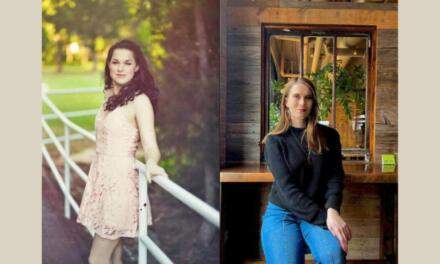Fela Anikulapo-Kuti probably belonged to a class of the society – the poor and those who recognized with their struggles. He however made music for everybody – for the emancipation and relief of the oppressed while for the rich, a stinging reminder of what ought to be done but has been omitted.
Those were my thoughts as I settled in at the Convention Centre of Eko Hotel for the final show of Fela! The Broadway Musical. As a 10-man band (interestingly composed of 7 Caucasian men, 2 black men, and 1 black woman) recreated the classical prelude to Fela’s tracks with horns and saxophone and drums, I pondered on how Fela transcended his physical and philosophical shores.
Going by the ticket rates for Fela! The Broadway Musical and the venue of the event, it was not impossible that some children of the oppressors who Fela sang against were likely in the hall to celebrate what he stood for and the principles he held on to until his death, regardless of state-sponsored attacks.
At about 8:30 pm, an introductory clip is projected showing a 44-year-old Fela taking a break from sucking on a wrap of you-know-what, to speak about being connected to higher forces. With flashes of some of his women swaying at a side, one grasps the spiritual undertone to Fela’s mission as a musician.
“Anyone who receives the gift of musicianship from the higher forces and abuses it will die young,” Fela says to a reporter. In that moment my mind wanted to ask if dying at 58 also meant dying young but with 4 ladies virtually rolling their hips onto the stage, I knew it was more productive to watch them than to think of death.
Fela’s clip concludes on the huge screen with one of his iconic poses – 2 hands in the air with clenched fists, the re-enactment of which invokes a tingling sensation even though the ladies with beaded waists before me did not appear to have ever led a struggle against the military rule for instance.
The Afrobeat legend was performing one of my personal favorites, “Army Arrangement” as the clip came to an end and the ladies took their positions on the stage, a bearable distraction from the words of the Abami Eda. I could not, however, honestly separate what the ladies did next from the Fela brand. Aided by the band, it was organized chaos of the beaded waists moving in rhythm to fast-paced jazz and funk.
For a brief second, I could swear I saw my neighbour pretending to be engaging his female companion in a chat and oblivious of the salacious movements on stage until he could hold it no more, jumping up and screaming “Yeah Yeah!”
There were a number of others jumping up to scream in excitement just before Sahr Ngaujah (who played Fela) comes on stage to introduce each member of the troupe. Sahr is of Sierra Leonean ancestry and it is impossible to omit to note the names, that only one of the dancers was Nigerian. Even then, the lone Nigerian dancer, Olubosade, struggled to pronounce his own name the way an average Yoruba man would pronounce it.
For some seconds, my mind digressed to Bolanle Austen-Peters’ words at another event about valuing our culture and her reference to the Fela! on Broadway as an example of how culture can be appropriated for good reasons when the owners lack necessary structures to project it as they should.
I was probably thinking too much when I ought to be enjoying the show so I paused the reflections and listened to Sahr talk about how the performers were all students of the “school of Fela” and would be performing some of the songs Fela stopped performing publicly once he recorded them. It was the first time I was learning Fela had such a principle.
There were other teaching moments, and that was exactly Sahr called them. Words cannot adequately capture what “1 O’Clock or 3 O’Clock” means but for those movements Fela and his dancers made, there were code numbers denoted by hours on the clock. When you can, you should really try to learn the “419” combination. It was a pure delight to watch!
The troupe performed Fela’s songs, from “Expensive Shit” to “Sorrow Tears and Blood” and “Colonial Mentality,” among others to the thrill of the audience. There was also a rhythm session with Alex Harding, the saxophonist, and 2 of the energetic dancers, Iris and Shawn. Calling it a beauty to behold would still be understating the effect they had on the audience.
As the event wound to a close, the troupe invited some members of the audience to join them on stage and as some of my friends would say, many were glad to “forget their home training,” spreading and jiggling to Afrobeat.
Fela! The Broadway Musical has kicked off in grand style in the city Fela called home. With all that spectacular hitch-free and excellent production, I cannot but wish the troupe well as they take Fela’s story around the world.
By Tobi Adebowale
This article was originally published on olisa.tv. Reposted with permission. Read the original article.
This post was written by the author in their personal capacity.The opinions expressed in this article are the author’s own and do not reflect the view of The Theatre Times, their staff or collaborators.
This post was written by Tobi Adebowale.
The views expressed here belong to the author and do not necessarily reflect our views and opinions.

